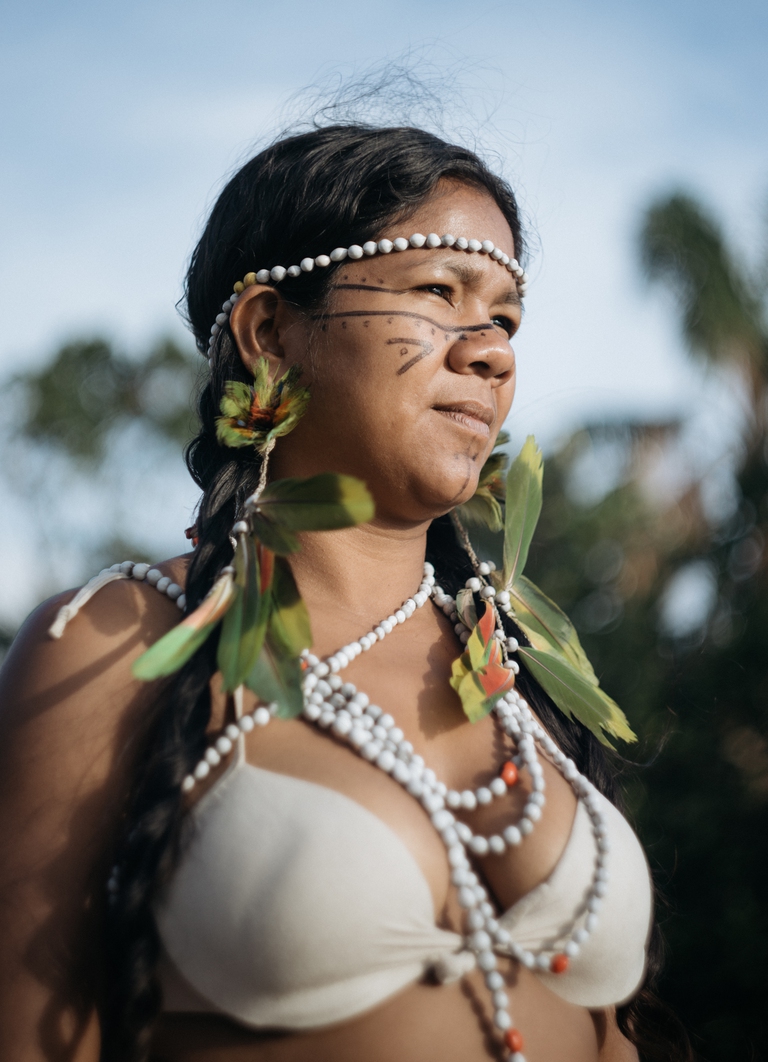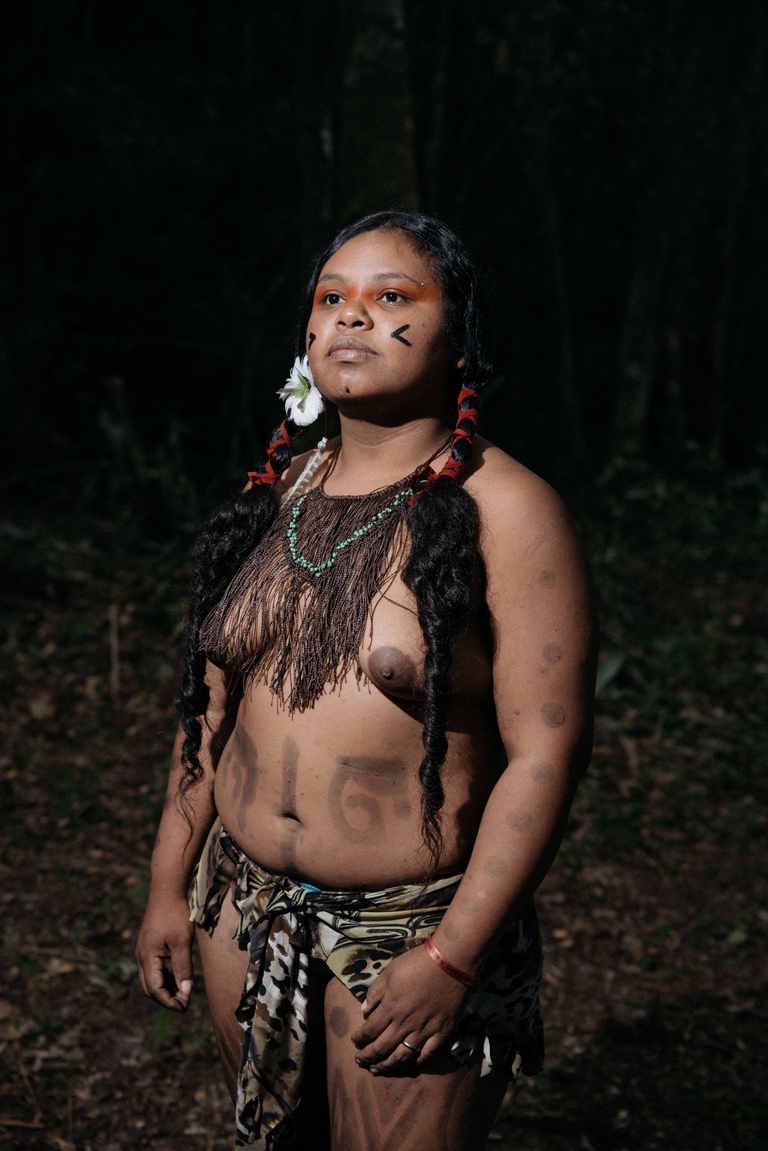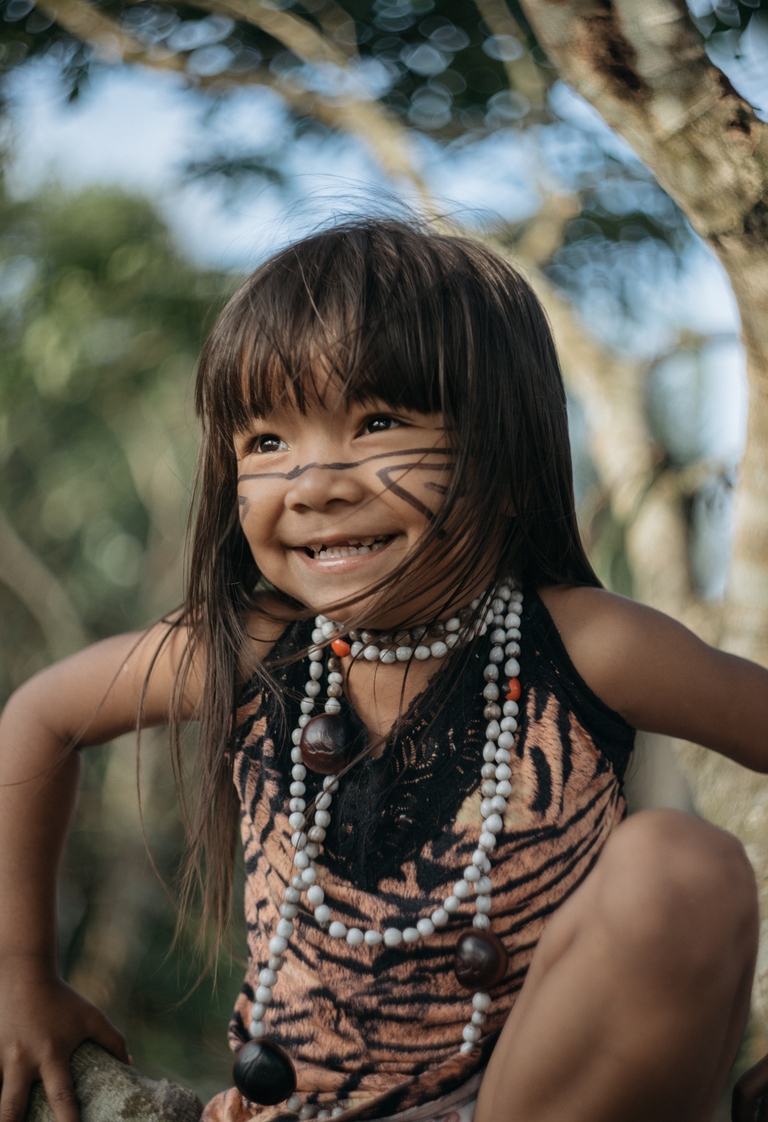
A special report from the Yuqui territory delves deep into the dreams, challenges, joys and sadness of one of Bolivia’s most vulnerable indigenous groups.
The voices of native Brazilians outside the Amazon are rarely heard. We speak to Lucca Messer, whose documentary on the Piaçaguera indigenous portrays their plight – then and now.
If we’ve been resisting for 500 years, we’ll carry on resisting.Indigenous woman of the Piaçaguera community
Resistance isn’t only a general sense of struggle against the vestiges of colonial genocide and institutionalised racism. Brazil’s indigenous today face yet another challenge on the path to something that may, eventually, resemble equality in the shape of Jair Bolsonaro, who became president of the most populous Latin American nation in October 2018: a far-right, populist leader described as the “Trump of the Tropics” (though if the Brazilian elections had come first, we’d probably be speaking of a “gringo Bolsonaro”).
The complex intermingling of indigenous history and contemporaneity in Brazil emerges in the short documentary simply called Indigenous Struggle in Brasil by Lucca Messer, a young filmmaker and photographer split between London and São Paulo. After over a decade living in South America’s largest city, Messer packed his camera to meet and film the eleven tribes of Piaçaguera, a stretch of indigenous land only an hour and a half away from São Paulo. This area is home to around 350-400 inhabitants, part of roughly half of native Brazilians who don’t live in the Amazon.
Brazilian tribes’ right to land is sanctioned by the 1988 Constitution, which ended two decades of military rule, and their territories occupy around 13 per cent of the country’s land mass. This right is under severe threat because of Bolsonaro, whose disregard towards his country’s native inhabitants stands in evident contrast to his closeness to large commercial lobbies such as the agro-industrial and mining sectors. As promised during the electoral campaign, he inaugurated his mandate by stripping the Funai, the governmental body in charge of indigenous affairs, of its mandate to demarcate indigenous lands, transferring it to the Ministry of Agriculture.
To legitimise such moves, he has spurned out a deluge of hate speech, encouraging racism towards native peoples as well as, concomitantly, the exploitation of Brazil’s natural resources – which indigenous territories are rich in, especially in the Amazon. Some commentators have pointed out how episodes of violence against Indians have in part been fuelled by this rhetoric, such as the recent killing of the leader of the Amazonian Waiãpi tribe by illegal gold miners.
Indians shall have their social organisation, customs, languages, creeds and traditions recognised, as well as their original rights to the lands they traditionally occupy, it being incumbent upon the Union to demarcate them, protect and ensure respect for all of their property.Article 231 of the Constitution of the Federative Republic of Brazil
Though Messer didn’t explicitly set out to investigate the effects of Bolsonaro’s policies on indigenous communities, his documentary paints a stark (though cinematographically beautiful) picture of the intense pressures they face. “I feel attracted to speaking to marginalised people because they have something to say but nobody listens to them,” he explains. Many focus their gaze on the plight of native tribes in the Amazon – also given the dramatic ecological pressures this vital ecosystem in facing, with some predicting that deforestation rates, which have spiked under Bolsonaro, are reaching a point of no return. But Messer looks beyond, narrating the social drama unfolding in a community that lives in a small slice of the 1.5 per cent of indigenous Brazilian located outside the Amazon. An area that is equally vital to the preservation of native cultures and ways of life.
Can you tell us about the Piaçaguera community’s battle for land demarcation?
In 2016 Dilma Rousseff sanctioned the land shortly before she was impeached. Her government was one of the worse in sanctioning indigenous land (though not as bad as her successor Michel Temer); she only did so around two months before she left office. The Piaçaguera have been fighting to remain there ever since, as demarcation doesn’t mean you’re not susceptible to political and social attacks. It’s a very large bit of land on the southern coast of São Paulo. This community is under constant threat because of its closeness to urban centres. For example, evangelism is heavily present and many have converted.
In your documentary, one woman says that “many indigenous people are shy to say they’re indigenous”. How are native peoples in Brazil struggling to preserve their identity and culture?
Once the young become teenagers, they leave the tribes and go to study in the closest city. They transition abruptly, there’s no transition in fact, the next minute they go into school with non-indigenous people where they suffer a lot of bullying and prejudice. They feel lonely and isolated, and they experience conflict when they go back to their tribe after school. They defend themselves by wanting to withdraw from their identity because of the prejudice: this is the beginning of the end. For example, the spiritual leader in the documentary told me there’s no one who’ll succeed him. This is ethnocide, which is about removing cultural identity gradually. The media do a very good job of talking about deforestation in the Amazon, but we also have to look at the social implications of this ethnocide and the genocide that started with the invasion of the Portuguese (in the 1500s, editor’s note).
Bolsonaro promised that “there won’t be a centimetre more of indigenous land” and has compared the inhabitants of indigenous reserves to animals in zoos. Why does Brazil’s president hold them in such low regard?
There’s only about a million indigenous people in Brazil, they make up 0.4 per cent of the population. Yet they’re still a barrier because Bolsonaro is completely against the preservation of Brazil’s natural resources and the land. But it also has to do with wanting to kill them off: they’re an impediment to making the country “clean” before it can really build up its foundations for what is modernity in his eyes. He views the indigenous as a parasite to shake off.
Indigenous peoples worldwide are championed as the custodians of nature. Are the people of Piaçaguera also committed to protecting the environment?
There is that concern, maybe less than communities in the Amazon for example. They are different fights: indigenous people in the Amazon fight for their land because there’s a lot more exploitation. Piaçaguera land doesn’t have that many resources that people can go in and steal, but even here the indigenous are strongly connected to the land. Indigenous life stems from the Earth, from below the feet, that’s their god, called Nhanderú. They make the best of what is available to them. Because Piaçaguera is by the sea, the soil is sandy and not very fertile so they depend on the Funai giving them a minimum salary to buy food from the supermarket.
Also given their closeness to São Paulo, do the people of Piaçaguera want to leave their territory and change life?
The most interesting aspect are the young people. Technology is present, they have mobile phones and social media, they live close to urban centres, they go to school with non-indigenous people, they’re being influenced. And the evangelism is happening. If you imagine a person standing in the middle of a circle and having so many guns pointed at them, that’s what going on. You’re confined to the land, but if you have social media, you know you can have other options in life. I think indigenous land will end; it won’t prevail. It’s really sad but that’s how I see it.
Can you tell us about Kelly, who used to be the youngest tribal leader in Brazil, who in the documentary says, “I’m here to show that women can also be leaders”?
The young leaders want to resist. Kelly isn’t the tribe leader any more, but I have my money put on women saving the planet. There’s a lot of evidence in indigenous communities that women are team players, they’re compañeras (companions). I was there speaking to the women and I was thinking, they’re brilliant – and the dudes were just playing football. In any case, these communities are going to fight until the end, even though they’re small in numbers. In the documentary the closing interview is with an incredible woman who says, “we’ve been resisting for 500 years”. They’ve just never stopped resisting; they’ve been struggling since the invasion.
Siamo anche su WhatsApp. Segui il canale ufficiale LifeGate per restare aggiornata, aggiornato sulle ultime notizie e sulle nostre attività.
![]()
Quest'opera è distribuita con Licenza Creative Commons Attribuzione - Non commerciale - Non opere derivate 4.0 Internazionale.
A special report from the Yuqui territory delves deep into the dreams, challenges, joys and sadness of one of Bolivia’s most vulnerable indigenous groups.
The Yuqui people of the Bolivian Amazon fight not only to survive in the face of settlers, logging and Covid-19, but to preserve their culture and identity.
Jair Bolsonaro is accused of crimes against humanity for persecuting indigenous Brazilians and destroying the Amazon. We speak to William Bourdon and Charly Salkazanov, the lawyers bringing the case before the ICC.
Activists hail the decision not to hold the 2023 World Anthropology Congress at a controversial Indian school for tribal children as originally planned.
Autumn Peltier is a water defender who began her fight for indigenous Canadians’ right to clean drinking water when she was only eight years old.
The pandemic threatens some of the world’s most endangered indigenous peoples, such as the Great Andamanese of the Andaman and Nicobar Islands in India.
The Upopoy National Ainu Museum has finally opened. With it the indigenous people of Hokkaido are gaining recognition but not access to fundamental rights.
A video shows the violent arrest of indigenous Chief Allan Adam, who was beaten by two Royal Canadian Mounted Police (RCMP) officers.









